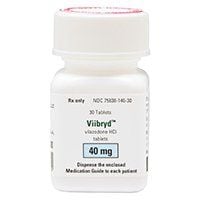This is an automatically translated article.
The article is professionally consulted by Resident Doctor Pediatrician - Neonatologist - Department of Pediatrics - Neonatal, Vinmec Hai Phong International General Hospital
Micronutrients are substances that account for only a small amount in the body but play a very important role in growth, maintenance and improvement of health, intellectual development,... Micronutrient deficiency is a common condition. seen in young children affects the child's development. Therefore, it is very important for parents to early recognize their children's micronutrient deficiency.
1. What are micronutrients?
Micronutrients are substances that make up only a small amount in the body but have a very important role in the process of growth, intellectual development, as well as maintenance, health promotion and disease prevention. Micronutrients include water-soluble vitamins such as vitamins of groups B, C and fat-soluble vitamins such as vitamins A, D, E, K, ... group of mineral elements such as calcium, copper, iron, phosphorus, zinc, selenium,...
Although these micronutrients do not provide energy for the body, they are indispensable for normal development. Micronutrient deficiencies in children can cause serious problems, affecting their intellectual development, physical health and growth.
2. How to know children lack micronutrients?
How to know what your baby lacks is a matter of concern for many parents. In fact, children with micronutrient deficiencies will have the following symptoms:
Children with slow weight gain Children with growth retardation Children often get sick or have infections such as pharyngitis, nasopharyngitis, or diarrhea. Recurrent hair loss, night crying and night sweats, tossing and turning, difficulty sleeping. Blue skin, dry hair and brittle nails Bone and joint pain, bone deformity, chest deformity When a child has the above symptoms, parents need to take the child to the hospital to check if the child has a micronutrient deficiency. nutritional deficiencies and lack of any micronutrients, from which additional measures can be taken to intervene in a timely manner. In some cases, children who are not malnourished may still have micronutrient deficiencies due to inadequate nutrition. Therefore, periodic health check-ups to check micronutrients for babies are also very important to help early detection and timely supplementation.

3. How does micronutrient deficiency affect children?
3.1 Vitamin A deficiency
Vitamin A plays an important role for young children, helping children to develop normally, enhance immunity and protect the cornea, skin, and mucous membranes. In particular, vitamin A is also effective in preventing infections such as diarrhea, respiratory tract, corneal dryness and blindness. If children are deficient in vitamin A, they will be prone to eye diseases and increase the risk of infections.
3.2 Lack of calcium and vitamin D
Vitamin D deficiency is the main cause of rickets in children, because vitamin D deficiency reduces calcium absorption in the intestines, the body will mobilize calcium in the bones into the blood, causing mineralization disorders ossification. Children will have symptoms such as fussiness, vomiting, sweating, hair loss, big head, wide fontanel, slow teeth growth, delayed walking, bone deformities, enlarged chest,... From there, do reduce the child's height. Vitamin D deficiency affects the immune system and resistance of children. Children are prone to diseases such as upper respiratory tract infections, or relapses.
3.3 Iron deficiency
Iron is one of the components of hemoglobin, involved in oxygen transport and cellular respiration. Iron deficiency leads to anemia and respiratory infections, bacterial infections in children. Iron deficiency makes children deficient in nutrients that affect growth and development of the body.
3.4 Iodine deficiency
When the child's body lacks iodine, the thyroid gland grows large and causes goiter. Besides, children with iodine deficiency also increase the risk of mental retardation, growth retardation, retardation and dullness.
3.5 Zinc deficiency
Zinc is one of the micronutrients that play an important role in growth and immunity. Children with zinc deficiency will have anorexia, growth retardation and reduced resistance, malnutrition and delayed height development.
In summary, micronutrients are substances that account for only a small amount in the body but play a very important role in growth, maintenance and improvement of health, intellectual development,... Micronutrient deficiency is A common childhood condition that affects a child's development. Therefore, when a child shows signs of micronutrient deficiency, parents should immediately take the child to a medical facility for examination. In addition, parents should also give their children regular checkups to detect micronutrient deficiency in children early.
To have more knowledge about taking care of children according to age, please visit the website (vinmec.com) regularly and make an appointment with the leading doctors, Pediatricians - Nutrition experts when you need advice.
| Đăng ký tư vấn dinh dưỡng cho bé tại: https://i.vinmec.com/dangkytuvandinhduong |
|---|













